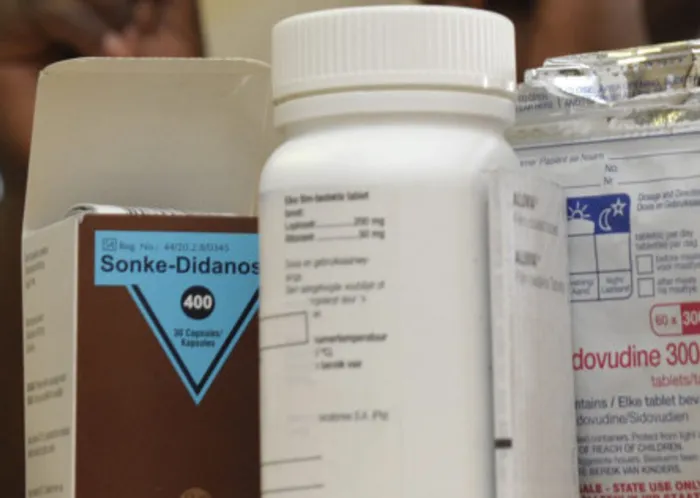‘Flagrant disregard’ for HIV-positive patients

The KwaZulu-Natal Department of Health is in a scramble to restock hospital dispensaries running out of medicines. Photo: Jeffrey Abrahams The KwaZulu-Natal Department of Health is in a scramble to restock hospital dispensaries running out of medicines. Photo: Jeffrey Abrahams
Johannesburg - Thousands of people living with HIV in the Eastern Cape are in catastrophic danger of developing fatal drug resistance due to ongoing interruptions in their antiretroviral (ARV) drug supplies, with activists calling on the health minster to intervene.
The grave warning was releasedon Tuesday in an updated report compiled by a number of activist organisations that are working on the ground in the province.
Five months ago, the Rural Health Advocacy Project, Doctors Without Borders (MSF), the Treatment Action Campaign (TAC) and Section27 released a report detailing the crisis at the Mthatha medical depot, which was unable to cope with ARV orders from clinics and hospitals. It now appears as if the situation is unchanged.
Releasing the updated report hours before the start of the 6th South African Aids conference in Durban on Tuesday, the group called for urgent action from the national and Eastern Cape health departments. More than 100 000 people, on ARVs or TB treatment, depend on 300 facilities served by this depot.
Almost half (40 percent) of the 70 facilities surveyed last year had experienced HIV or TB drug stock-outs.
A quarter (24 percent) of the affected facilities’ medical staff were forced to send patients home without any treatment. These stock-outs would last on average 45 days.
The crisis has been particularly acute, and began around October last year. The Eastern Cape health department has been accused of suspending 29 depot staff with no plan to provide services in their absence, the report says.
The depot still does not have a full-time manager and is operating with half the usual number of packing staff.
“The Eastern Cape Health Department is unable or unwilling to address the problems despite knowing of them for several years and despite the assistance that has been offered by civil society. We encourage the minister of health to use his powers in terms of section 100 of the constitution to intervene on an emergency basis to provide health services in line with national standards,” says John Stephens of Section27.
Vuyiseka Dubula of the TAC says it appears as if very little was learnt form the report they released in January. “It is unacceptable that there has been little or no change. We demand that Eastern Cape health MEC Sicelo Gqobana take leadership to end these stock-outs.”
MSF described the situation as “catastrophic”. “It means many thousands of people living with HIV have risked treatment interruption for months now. The stock-outs consequently undermine clinical benefits of life-saving ARV treatment. Over time, more deaths will occur as a result and the likelihood of increased drug resistance is significant,” says Dr Amir Shroufi of MSF.
Drug resistance refers to a decrease in the effectiveness of a drug. In the case of people living with HIV, it would mean resistance to the first-line drugs, forcing them to go on to the more expensive and scarcer second and third-line drugs.
Failure to access the required drugs could see the individual developing an opportunistic infection and possibly dying.
Eastern Cape Health Department spokesperson Sizwe Kupelo failed to respond to a request for comment.
Violations of the law
The failure of health authorities to resolve the stock-outs involves a number of violations of the law, according to Section27. These include:
l The state’s obligation under the constitution to provide for access to health-care services and not to reduce the level of health care provided, as well as to promote efficient, economical and effective use of resources.
l Obligations under the National Health Act 61 of 2003 to provide health-care services and to plan, manage and control the cost of doing so.
l Obligations under the Public Finance Management Act 1 of 1999 to ensure the proper and efficient use of public funds, including proper stock control and to prevent fruitless and wasteful expenditure.
l Obligations under the Pharmacy Act 53 of 1974 to ensure the safe and effective storage of medicine.
l Obligations in terms of disciplinary procedures. - Health-e News Service